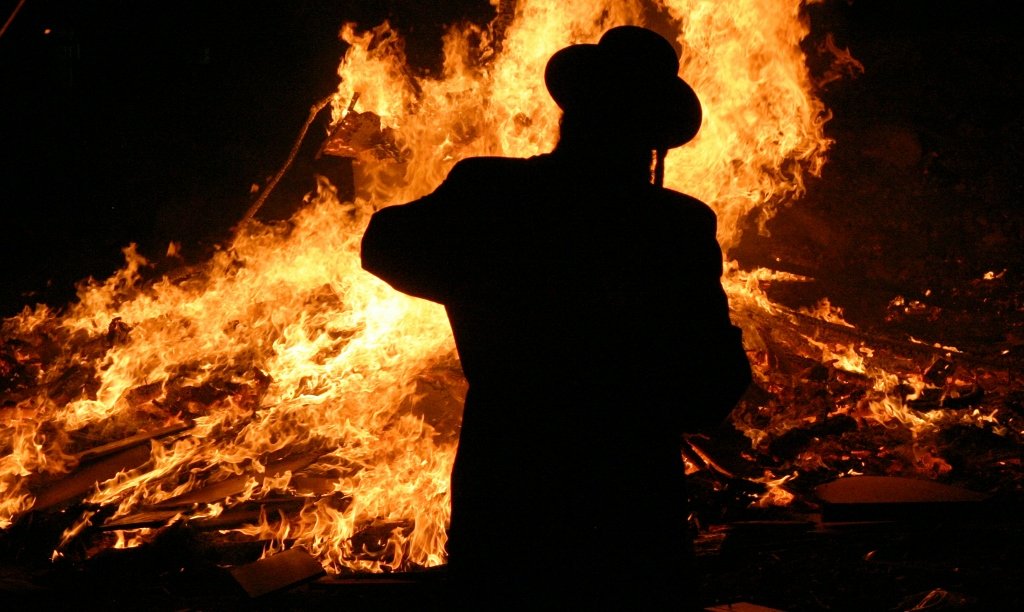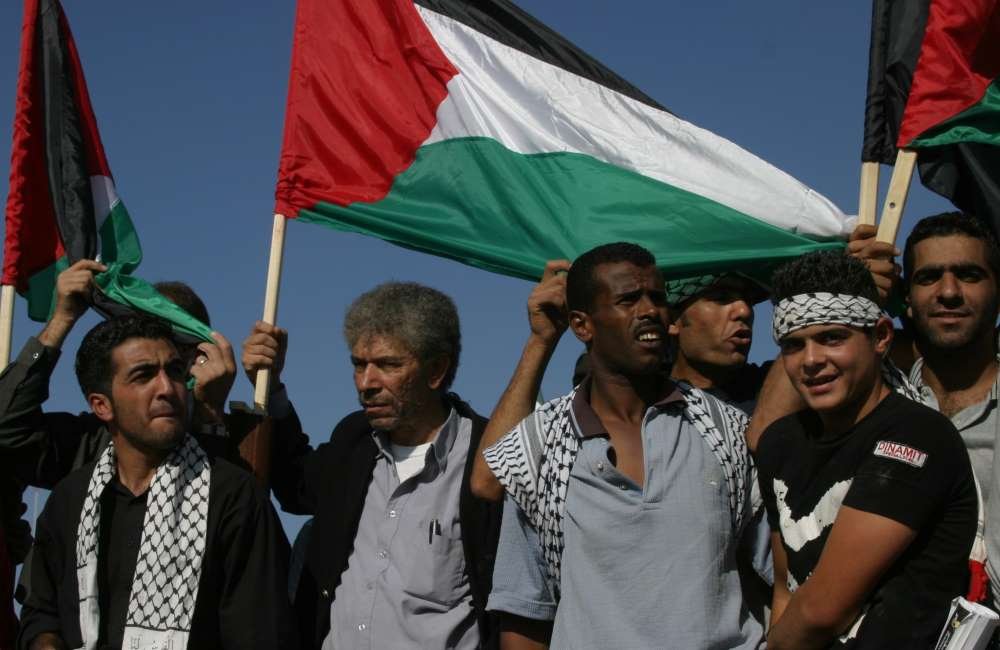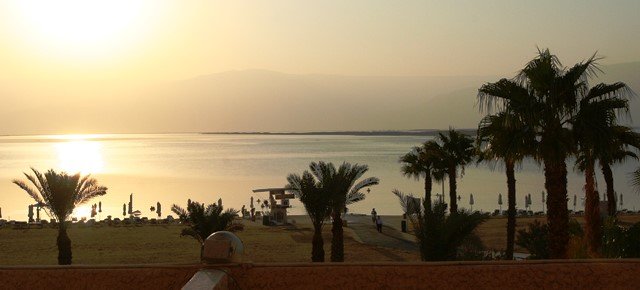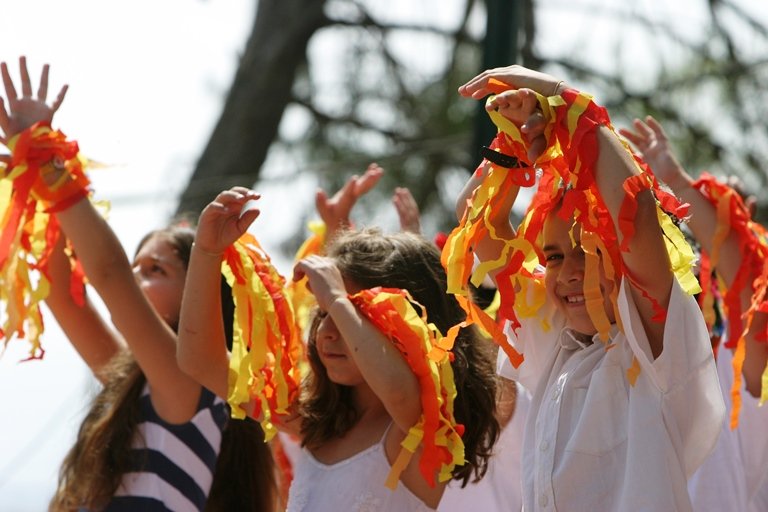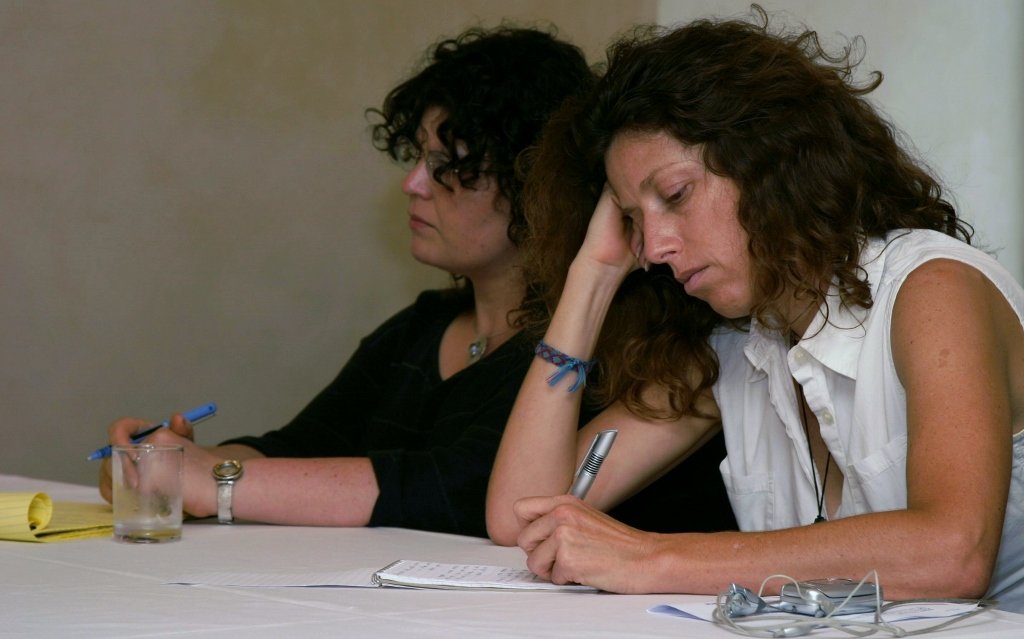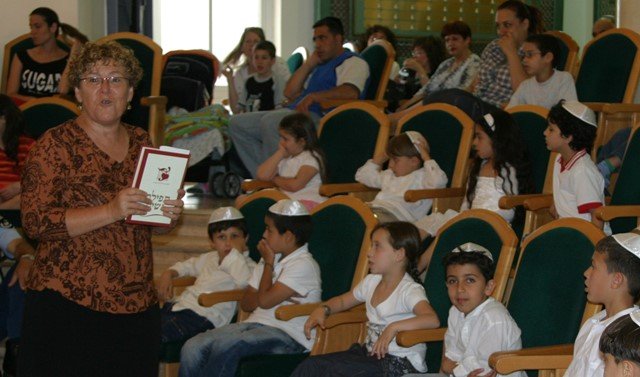Share This Story, Choose Your Platform!
“The center of the world is Israel. The center of Israel is Jerusalem. The center of Jerusalem is Mea Shearim…” The ultra-orthodox gentleman gives me a scrutinizing look, to see if I can follow him, and then continues: “… and the center of Mea Shearim is the ‘Stüblach”. That’s what these children here think. You need to know that if you want to understand the people here.” A group of 13- to 14-year-old boys storm past us shouting at the top of their voices. They are pulling a few door frames which are bumping loudly behind them. Further explanations get drowned in the noise.
Everyone in the ultra-orthodox Jerusalem district of Mea Shearim is dressed in black, following the example of Jews in Eastern Eruope in the 18th and 19th centuries. Nissim (that is the name of the man I am talking to), did not grow up in this world. Like his friend Elasar, he came here to study the Bretzlaver Rebbe in “Beit Midrasch” – the house of teaching. Actually, only Yiddish is spoken here. And “Stüblach” is what they call the countless mini-synagogues in which the religious folk immerse themselves in their studies day and night. “Mea Shearim” really means “a hundred gates” – but they are closed to the outside world. Mea Shearim is a world for itself, into which Pope Benedict has no access, even if he is visiting the Holy City only a few hundred meters away.
Nissim and Elasar are the first to volunteer an answer to the question “what do you think about the Pope’s visit?” Just before, I had stood in front of a billboard full of posters, which serves the residents of Mea Shearim as a newspaper. Radio and television are frowned upon as potential gateways to secular decadence. An old Rabbi with a long white beard takes seriously the directive to avoid the bus company Egged if it is not prepared to offer gender-separated bus routes. Even Mea Shearim, with its Middle Ages flair, knows how to air its opinions and exert economic pressure. When I ask about the Pope’s visit, he waves his hand dismissively and informs me in a high falsetto voice, “I beg your pardon? What’s that? Who’s that? No-one!! Nothing!” He doesn’t even grace me with a single glance as he speaks.
One of his
fellow-believers had stared at me with incomprehension just moments before, and
asked, “Pope? What on earth is that?!?” After I had explained
to him that Mr. Ratzinger is a fairly influential representative of
Christianity, he commented drily, “I haven’t got the time to think about
things like that.” His friend butts in. The 20-year-old with the name Israel
only speaks Yiddish and English, but, “like all decent Jews comes from
Brooklyn”, and therefore boasts a broad horizon in his outlook on things.
“Very good!” is his comment on the visit of the ‘Holy Father’,
“he’s decided to repent of what Christ did in the Holocaust. He’s
protesting.That’s why he’s come, isn’t it?!”
Avraham Stern emmigrated to Israel from Romania in 1951. He too is one of those who simply don’t have time to form an opinion on the Pope’s visit. He stares nonchalantly into the mass of cars and crowds. I stand next to him, rather at a loss as to how to tempt another comment from him. It’s difficult to draw an opinion out of somebody who doesn’t have an opinion. The 70-year-old suddenly looks me straight in the eye and asks, “Is he at least bringing money with him? Barch HaBa’ – in that case, let him come. I’ve got nothing against him. He doesn’t bother me.”
Round the
corner sits Mustafa under a corrigated iron roof which is about to
collapse any minute, selling fruit and vegetables, as he has been doing
for the past 40 years! Mustafa is 45 years old and lives in the Arab
district of the Old City of Jerusalem. He acts busy as I ask him about the
Pope. “I know someone who knows everything!”
“But I want to know what you think,” I insist.
“I’ve no idea,” explains the Arab, sipping hot tea from a plastic cup
which has dangerous dents in it, and shouts “Uuuuusi!”
“No,” I object vigorously, “I want to know your opinion!”
“Seven shekels and seventy,” he replies to an ultra-orthodox lady,
who is holding up a plastic bag full of vegetables.
“Who
is this Pope anyway?!” he mutters again in my direction. “He
comes.. and then he goes again….”
I stick to my guns.
“He’s only here for politics…” Mustafa is being evasive.
“Ja’ani, Ke’ilu…” He awkwardly strings together a few Arab and
Hebrew filler words.
“I haven’t a clue – but just imagine what it’s all costing us: 80,000
policemen are supposed to be looking after him! If that isn’t a waste of money,
what is?! Five shekels forty,” he tells the ultra-orthodox lady. She
completely ignores me and my question about the Pope – as is only right and
proper for a chaste woman from Mea Shearim. It’s scandalous of me to have
spoken to her in the first place.
“I don’t have any opinion about the Pope’s visit,” answers 25-year-old Nissim defiantly, “must I have an opinion about it?!??” While I ask myself why the Jews insist on answering every question with a counter-question, his friend Elasar explains, “I heard that they want to close the ‘Kotel’ (that’s what the Jews call the ‘Wailing Wall’) for the Pope. Just imagine, for 12 whole hours we’re not allowed to pray there! Would they be willing to close the Vatican for 12 hours if our Chief Rabbi went to Italy?!”
These people give foreigners, and especially Christians, a wide berth. In order to get into conversation with them at all, I’ve put a Yarmulke on my head. Elasar now finds out that I’m from Germany. He starts to wax lyrical: “Last year I was in Michelstadt, in Odenwald, and there I visited the grave of Baal Shem – for a whole night. And then we were in Warmersa (Yiddish for the city of Worms on the Rhine), in Beit Midrash of Rashi.” The Jews of Mea Shearim obviously have an enclave in Europe which natives there know hardly anything about.
His friend
Nissim brings the conversation back to the topic at hand. “Benedict
isn’t exactly something which brings joy. But I have a Father above,” and
the youth dressed in black points with his forefinger to the sky, “who
guides all things. The Pope doesn’t interest me. He can do what he wants. And John Paul was better
anyway.”
“Why?” he friend wants to know.
“Because he didn’t deny the Holocaust!”
“But he did say that he was sorry,” Elasar objects bravely.
“It’s all a load of bluff anyway. He’s that one who supported Durban II in
Geneva, you know?! But that doesn’t interest me a single bit,” he adds,
turning demonstratively away. “I’m studying the Gemarah (Talmud).”
“Did
you know that the Temple utensils are in the cellar of the Vatican?”
Elasar manages, after all, to find something which could make these folk
in their world here interested in the world of Catholicism. The ultra-orthodox
Talmud scholar encounters my incredulous and perplexed gaze with the words,
“That’s what Rav Lau said.”
“They don’t just say things – they know what they’re saying,” Nissim
adds in confirmation of his friend and their Rabbis, “and anyway, you can
see the Romans on the arch in Rome bringing the Menorah (the seven-armed
lampstand) there.”
Another mob of young boys shouting loudly as they drag all kinds of scraps of
wood past us, puts an abrupt end to our conversation.
A few streets further on, Israel (another one, not the one from Brooklyn, but with the same name) is sitting in a shabby, dusty stationery shop. In Israel’s shop you can buy everything which the (Jewish) soul needs for writing and praying. “Everything here is ‘Schmackes'”, comments the 50-year-old in reference to the wares he is offering for sale. In his hand he holds a threadbare, yellowed prayer book.
“When
is it, then?” He answers my question with a counter-question. “Next
week,” I dutifully inform him. “When next week?” he enquires
with scrupulous thoroughness.
“Well, Monday, Tuesday, Wednesday…”
“I’m on the Meron then,” he calmly interrupts, “I doubt whether
the Pope will be joining us there.” Hundreds and thousands of Jews gather
for the Lag BaOmer, the 33rd day of the Omer counting, on Mount Meron in
Galilee and commemorate the death of Rabbi Shimon BarYochai.
The
counting of the Omer begins with the Feast of Passover and ends on the 50th day
(“pentekosta” in Greek) with the Feast of Weeks, “Shavuot”,
which Christians celebrate as Pentecost (see Leviticus 23;9-16). Rabbi Shimon Bar Yochai is
accredited with the compilation of the Sohar Book, which is foundational for
the Jewish Kabbalah teaching.
But in reality, the Jews celebrate Lag BaOmer as a joyful festival of scholars.
According to talmudic
tradition, 24,000 students of Rabbi Akiva (in the 2nd Century
A.D.) died of a plague because they had not shown each other enough honor. On
the 33rd day of the counting of the Omer the plague lifted. That’s why orthodox Jews can shave their beards
again on the 33rd of the Omer, conduct weddings and celebrate other
joyful festivals – which is forbidden before that date.
“What
good can the Pope bring to Israel?”
Israel, the stationery shop owner, picks up the thread of the
conversation again, prayer book in hand.
“You know yourself what the Christians are like, what they’ve done to us
all these past years, all the violence, the lies, the deceit. That’s what the
Pope stands for. That’s who he is. What have we to do with the Christians? What
are his people doing here the whole year?? I don’t know! I have no contact with
them, have no idea who or what they are.”
He looks me in the eye with a scrutinizing gaze.
“I’m not a Jew,” I confess.
“Yes, yes,” he interrupts, “There are non-Jews too who at the
time of Holocaust for example were kind to the Jews. You know what I mean,
there are the ‘righteous among the nations.'”
We talk for some time about the things which shaped the history of these people
in Europe: pogroms, disposession, murder and humiliation.
“I hope you are not offended?” he enquires as I bid farewell. No, I’m
not offended. After all, I did want to know – to know what makes these people
tick.
On the
stone walls of Mea Shearim you can read in glowing colors, “out with the
Zionists and their collaborators!” And “Zionists are not Jews
– Jews are not Zionists!”
Eliyahu, a dark bearded man, speaks to me, and informs me that “all the
problems the people of Israel have are because we don’t listen to the sages and
great men of the Torah. That’s why the Gentiles too have to suffer.” I
have forgotten all about my question about the Pope’s visit, and prefer to hear
what this gentleman feels about things.
“Consider for example the Holocaust. The people of Israel have suffered a
lot. But the Gentiles have suffered a whole lot more. Only, we don’t talk about
that. The godlessness of the Jewish people is the reason for all the misery in
this world. Nothing will change until we acknowledge the Creator of the
world.”
Eliyahu
belongs to the Neturei Karta, a group of ultra-orthodox Jews who reject the
State of Israel in its present form.
“We’re the true Zionists,” he emphasises, “Why was the
land of Israel given to the people of Israel? The Holy One, praised be His
name, wanted us to live here in the Torah and the commandments. If we don’t
walk the way of the Torah, we have no right to be here.This is the Holy Land,
the House of God.”
He accuses secular Zionists of plundering the Holy Land. But even his own
parents emigrated to Isarel in 1951 “because the Arabs in Irak threw them
out. They didn’t have any other choice other than to come here.”
While the State of Israel is spending millions on the Pope’s visit, Mea Shearim is preparing for Lag BaOmer. Logistic details are announced on the billboards. Many are travelling to Galilee – most are staying at home and lighting the traditional fire on the evening of May 11 2009, the eve of the 33rd day of the counting of the Omer. From then on orthodox Jerusalem – and large areas of the whole land of Israel – is shrouded in the smoke of campfires, for which the children have for weeks already been collecting every scrap of wood (and all kinds of other things which they consider to be flammable) which isn’t nailed down somewhere. Next to me a door opens. A carpenter throws a few boards onto the road. From all directions the young lads, dressed in their black and white, hurl themselves onto the wood and tussle for it. No-one really knows where the campfire tradition originally comes from. But it’s great fun! Much more fun than forming opinions about the old man from Rome.
Translation by Nicola Vollkommer


